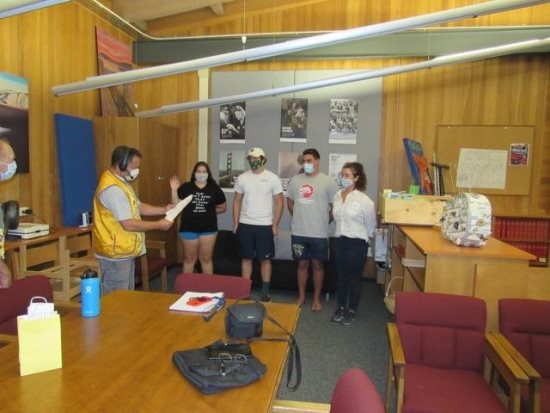| | Published September 30th, 2020
| Protect your health during cancer treatment
| | |  | | (c) michaeljung / iStock via Getty Images Plus |
(StatePoint) Cancer can be a difficult and overwhelming diagnosis, and if you have cancer or are undergoing cancer treatment, your top priority is to get healthy. After your cancer diagnosis, there are many new things you might need to learn and manage. The Centers for Disease Control and Prevention and the National Blood Clot Alliance want you to protect your health by understanding your risk for dangerous blood clots, because cancer and some cancer treatments can increase your risk. About 900,000 people in the U.S. each year are affected by blood clots, and about one in five of these blood clots are associated with cancer.
 The risk for a blood clot is greatest in the first few months after cancer is diagnosed. Some cancers pose a greater risk for blood clots, including cancers involving the pancreas, stomach, brain, lung, uterus, ovaries and kidneys, as well as blood cancers such as lymphoma and myeloma. The higher your cancer stage, the greater your risk for a blood clot. The type of cancer treatment you receive may increase your risk for blood clots too. Treatments involving hospitalization, surgery, chemotherapy, hormonal therapy, catheters placed in your veins, and some other therapies can increase your blood clot risk.
The risk for a blood clot is greatest in the first few months after cancer is diagnosed. Some cancers pose a greater risk for blood clots, including cancers involving the pancreas, stomach, brain, lung, uterus, ovaries and kidneys, as well as blood cancers such as lymphoma and myeloma. The higher your cancer stage, the greater your risk for a blood clot. The type of cancer treatment you receive may increase your risk for blood clots too. Treatments involving hospitalization, surgery, chemotherapy, hormonal therapy, catheters placed in your veins, and some other therapies can increase your blood clot risk.
 Know the Signs and Symptoms of a Blood Clot
Know the Signs and Symptoms of a Blood Clot
 Blood clots occur most often in the legs or arms, and symptoms include:
Blood clots occur most often in the legs or arms, and symptoms include:
 � Swelling
� Swelling
 � Pain or tenderness not caused by an injury
� Pain or tenderness not caused by an injury
 � Skin that may be warm to the touch, red or discolored
� Skin that may be warm to the touch, red or discolored
 Blood clots in your legs or arms can travel to your lungs, which can be deadly.
Blood clots in your legs or arms can travel to your lungs, which can be deadly.
 Symptoms of blood clots in your lungs include:
Symptoms of blood clots in your lungs include:
 � Difficulty breathing
� Difficulty breathing
 � Chest pain that worsens with a deep breath
� Chest pain that worsens with a deep breath
 � Coughing up blood
� Coughing up blood
 � Faster than normal or irregular heartbeat
� Faster than normal or irregular heartbeat
 Contact your cancer doctor immediately if you experience any blood clot symptoms.
Contact your cancer doctor immediately if you experience any blood clot symptoms.
 A Plan to Protect Your Health
A Plan to Protect Your Health
 As you take steps to preserve your health, make blood clot awareness part of your care.
As you take steps to preserve your health, make blood clot awareness part of your care.
 � Know your risks for blood clots, and discuss these risks with your cancer doctor.
� Know your risks for blood clots, and discuss these risks with your cancer doctor.
 � Stay alert for any signs or symptoms of blood clots after surgery or treatment in an outpatient clinic. Contact your cancer doctor right away if you experience any of these signs or symptoms.
� Stay alert for any signs or symptoms of blood clots after surgery or treatment in an outpatient clinic. Contact your cancer doctor right away if you experience any of these signs or symptoms.
 � Work with your cancer doctor and make a plan to protect yourself against blood clots that is specific to your personal medical history and treatment.
� Work with your cancer doctor and make a plan to protect yourself against blood clots that is specific to your personal medical history and treatment.
 Visit www.stoptheclot.org/spreadtheword/cancer for more information.
Visit www.stoptheclot.org/spreadtheword/cancer for more information.
 If you have cancer or are undergoing cancer treatment, protect your health. Know your risk for blood clots and talk to your doctor if you experience any blood clot signs or symptoms.
If you have cancer or are undergoing cancer treatment, protect your health. Know your risk for blood clots and talk to your doctor if you experience any blood clot signs or symptoms. |
| | | | | | | | | | | | |



